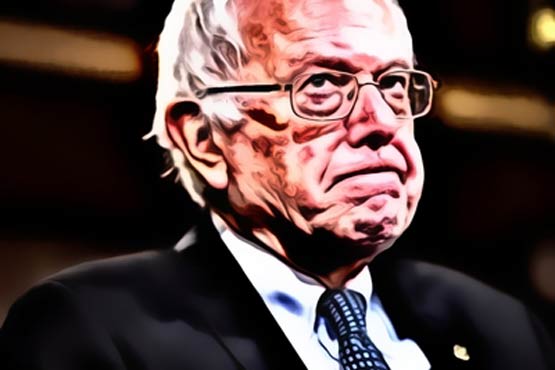
Sen. Bernie Sanders, I-Vt., raised approximately $6 million in the first 24 hours after his presidential campaign announcement. But his Democratic opponents shouldn't be surprised or concerned.
Sanders is the only Democratic contender for 2020 who ran for president in 2016, during which he raised about $230 million. For someone with nearly universal name recognition, an extensive donor list and a long run-up to his announcement, Sanders's haul shouldn't impress knowledgeable political watchers.
(Should Joe Biden announce, I would bet his 24-hour fundraising total will dwarf Sanders's total. A former vice president shouldn't have to lift a finger to trigger a flood of money.)
More to the point, fundraising totals, I would argue, have as much predictive value as, say, poll numbers nearly a year before the Iowa caucuses (Feb. 3, 2020). Ask Ron Paul ($40 million raised in 2012, zero primary victories) or Jeb Bush ($155 million raised by his campaign and outside groups). Ask Hillary Clinton, whose fundraising prowess in 2008 didn't secure the nomination and in 2016 struggled to defeat Sanders before losing to Donald Trump.
Money only gets you so far and in some instances conveys an unwarranted front-runner status (e.g., Jeb Bush) that contributes to the perception of underperformance if the candidate doesn't win in early states.
I would argue that for all the talk of dark money - which is most certainly an issue insofar as it erodes faith in democracy and contributes to polarization - money will matter even less this time around in the primary, and perhaps even in the general election. Instead of talking about who has the "most money," /we would do better to see if a candidate has "enough money."
And early on, even having "enough money" isn't such a big deal. In 2008, Sen. John McCain, R-Ariz., was famously broke going into New Hampshire, won there and never looked back. In 2012, former Sen. Rick Santorum had little more than his trademark sweater vest when he eked out a narrow win in the Iowa caucuses. The benefit of small states as the early contests is that it levels the money playing field.
You expect 2020 will be different because of an early Super Tuesday with states in which advertising is essential and expensive (e.g., California, Texas). It will be different, but for several reasons, I'm not convinced that will make money more important this time around.
First, the month between the Iowa caucuses and Super Tuesday gives a surprise victor or a surging underdog time to generate a rush of money. (Yes, California early voting will be underway on March 3, but plenty of voters will wait until Election Day precisely to size up the field. Moreover, there are eight other Super Tuesday states.)
Second, digital ads picked up by TV and other media give candidates a cheap way to get widespread coverage. (Recall the viral ads from the 2018 congressional races, such as the biographical piece from Rep. Alexandria Ocasio-Cortez, D-N.Y.) Furthermore, if one masters free media, Trump showed you can dominate the news cycle and drown out ads.
Finally, Sanders has another obstacle that may undercut any money advantage he has. CNN's Ronald Brownstein explains that after Iowa and New Hampshire, "the next month of the primary calendar is dominated by states across the Sun Belt where non-white voters comprise a large share, and often an absolute majority, of the electorate." He writes:
"The pivot begins with Nevada and South Carolina,where contests will be held in the second half of February. The tilt toward diversity then explodes in early March when big Sun Belt states from Florida, North Carolina and Virginia in the southeast to Arizona and Texas along with California across the southwest will all crowd together on the calendar. ...
"That could advantage the candidates best positioned to appeal to minority voters, particularly African-Americans - a list led by black Senators Kamala Harris and Cory Booker, as well as former Vice President Joe Biden, who's still considering whether to run."
In other words, money's not everything --- and certainly not as important as the media often suggest it is.
Sign up for the daily JWR update. It's free. Just click here.
(COMMENT, BELOW)


 Contact The Editor
Contact The Editor
 Articles By This Author
Articles By This Author